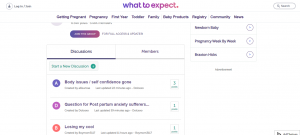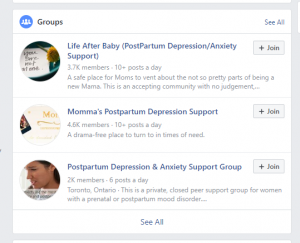When you hear a certain phrase too many times, it starts becoming confusing. In the personal development circles, you’ve probably heard this a lot of time: “find your passion”. For peeps like me that have varied interests, I think it gets muddled up. It’s too abstract. For many people, the realization that the “passion” isn’t something that can be easily monetized (or they don’t feel justified in monetizing) also plays a part in the confusion.
A more realistic phrase, I believe, is “Find your niche”. And this also applies in the passion circles. I believe the key to monetizing a passion is picking a niche. Your niche is your space. It’s where your voice can more easily be heard.
Finding your niche doesn’t automatically mean you’ll hit the ground running, but here are three advantages to defining your niche:
- It gives you a better chance at success. It’s a competitive market out there, but defining your niche gives you a chance to influence the level of competition you deal with.
- Finding your niche means you can play to your strengths. One thing that kills a lot of businesses fast is trying to be like others. Essentially, you have a few strengths that you need to identify and bring up to the surface.
- Finding your niche means you can build a potentially solid client base. The more niched or sub-niched you are, the more people feel they can trust you with their money.
Let me try to define a sub-niche: For the most part, there is enough competition in almost every niche out there to choke up your startup. Hence, it makes sense to go for the next best thing, a SUB-NICHE, meaning a niche under a niche. Note these things when deciding on a sub-niche.
- Have enough competition. Competition is great. You don’t want to be a one-man army. But your sub-niche should not be too competitive. Get a balance.
- Be profitable, i.e have sell-able products that folks are buying. It’s always great to have the end goal in mind. That is, unless you run a non-profit. It’s good to have your motivations set in stone.
- Have enough folks talking about it on social media. A large percentage of the world’s population is on social media (At least Facebook has over 2 billion users). I believe social media presents a more direct approach to commercial viability testing. Are there pages and groups talking about the subject? If lots of people are talking about it on social media, then it’s worth talking about.
So, I’m going to present three pieces of research you need to do to find your niche or sub-niche. These three things are more like a precursor to the above advantages. That is something like, if you do this, you’ll get this result. For example, if you research your strengths, you’ll play to those strengths. Or, at least you should. Pretty direct, right?
Research Your Strengths
The first step to defining your niche should be looking inward, not outwards. Most new startups would commence by comparing different search engine results and results from different keyword research tools. While this is good, the keyword search results may not be your strengths. When we talk about strengths, these don’t need to be literal strengths. And you don’t have to be so passionate about it that it makes you wake up at 2 am (props to you if that’s the case).
But, rather, market strength? What areas have you found yourself more advantaged? Are you interested in working in these areas? For example, you might just be able to do it better than a few people, but yes, you’re well qualified to do it. Can you monetize it?
I want to develop a simple profile for Rene, a speaker who has gone through postpartum depression and believes she has the capacity to help people suffering from this depression. She wants to help these women build a stronger self-image.
 Her strength is that she has had first-hand experience of postpartum depression. She also has medical experience up her sleeve.
Her strength is that she has had first-hand experience of postpartum depression. She also has medical experience up her sleeve.
Research Your Potential Customers
What do they really need? Now, we can look outwards. There are lots of tools that help you research what buyers need. Here, you keep your eyes on profitability. Product businesses will do well with direct market tools like Amazon, Google’s Keyword Planner, Clickbank…
Service businesses will have a better idea of what their customer needs by traversing social media groups, forums, and comments.
In the first case, what products are people buying more of? In the second case, what questions are getting the most engagement? Or, what questions are being asked most? Now, in Rene’s case, she searched through some forums and found that most inquiries on PPD were questions of self-confidence and fear.
 She could use her experience both in the medical field and from experiencing the illness firsthand to offer solutions that would actually meet people’s needs.
She could use her experience both in the medical field and from experiencing the illness firsthand to offer solutions that would actually meet people’s needs.
Research the Competition
Lastly, you should research your competition. Are there businesses or organizations in this niche or sub-niche that are doing what you aim to do? Note two or more successful businesses or groups that are direct competitors. What are they doing? Check through their site, their social media handles, and note some important things that they keep doing. Are they doing Facebook adverts? What’s the nature of their advertising? Set up Google Alerts to keep tabs on them.
For Rene, she got her spy hat on. In the end, she decided she wasn’t going to monetize her help. But she was going to help as many mothers as she could by creating a Facebook support group. She might put some flux into this strategy by extending to other social platforms. Once she’s done that and created enough influence, she plans to launch a book to help young mothers build up their self-image.

Now she has found her passion or more specifically, a niche she loves that her experiences and skills qualifies her for.
Obviously, it’s not going to take six minutes. But it’s a pretty good summation of niche research. Now that you’ve gotten your sub-niche down, what’s hindering you?
This is a Contributor Post. Opinions expressed here are opinions of the Contributor. Influencive does not endorse or review brands mentioned; does not and cannot investigate relationships with brands, products, and people mentioned and is up to the Contributor to disclose. Contributors, amongst other accounts and articles may be professional fee-based.

